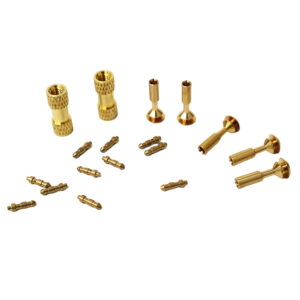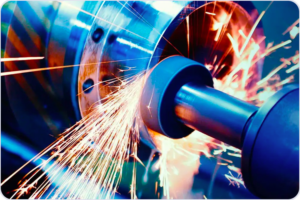The advantages and applications of CNC machining in the manufacturing of medical device parts
In the field of medical devices, the accuracy and quality of parts are directly related to the life, health, and treatment effectiveness of patients. With the continuous development of technology, CNC (Computer Numerical Control) machining technology plays an increasingly important role in the manufacturing of medical device parts due to its excellent performance.

1、 The high-precision advantage of medical CNC machining
Medical device components often have extremely strict requirements for dimensional accuracy. For example, some parts implanted in the human body must have their size errors controlled within a very small range, otherwise it may affect the implantation effect and even cause harm to the patient. CNC machining technology can achieve micrometer level accuracy, which is difficult to achieve with traditional machining methods. By precisely controlling the motion trajectory of the cutting tool through a computer, CNC machine tools can accurately process various complex shaped parts according to the requirements of the design drawings, ensuring high precision and consistency of the parts.
2、 The Medical machining capability of complex shaped parts
There are many complex shaped parts in medical devices, such as joint heads in joint replacement and dental implants. These parts have irregular shapes, making it difficult to achieve precise machining using traditional processing methods. CNC machining technology has multi axis linkage function, which can easily machine various complex surfaces and contours. By using CAD/CAM software for programming, the design model can be converted into instructions that the machine tool can recognize. CNC machine tools can accurately process the required parts according to the instructions, greatly improving the design and manufacturing level of medical device parts.
3、 Wide adaptability of materials
Medical device components have very strict requirements for materials, requiring good biocompatibility, corrosion resistance, and mechanical properties. CNC machining technology can adapt to the processing of various materials, including stainless steel, titanium alloys, medical plastics, etc. For different materials, CNC machining can ensure machining quality and efficiency by adjusting machining parameters such as cutting speed, feed rate, and cutting depth. For example, when processing titanium alloy parts, due to the high hardness of titanium alloy, CNC machining can use appropriate tools and cutting parameters to effectively avoid tool wear and surface quality degradation.
4、 Improve production efficiency and quality stability
In medical device manufacturing, production efficiency and quality stability are equally important. CNC machining technology has the characteristic of high degree of automation. After one clamping, multiple processes can be completed, reducing the number of clamping times and the influence of human factors, and improving production efficiency. At the same time, once the CNC machining program is determined, it can ensure that each part is processed according to the same process, thereby improving the stability of product quality and reducing the scrap rate.


